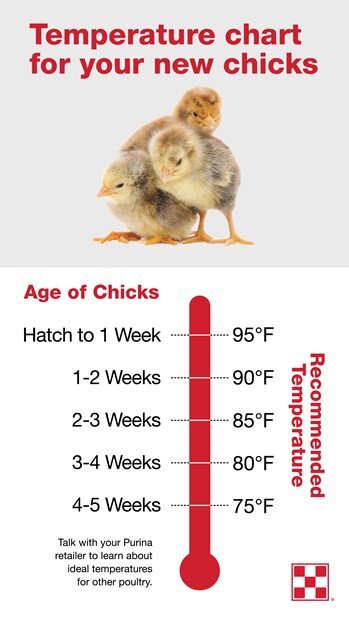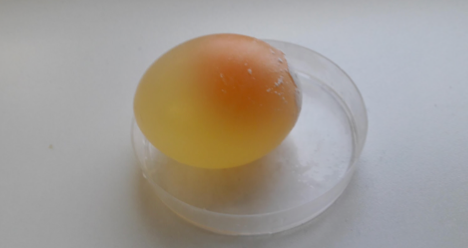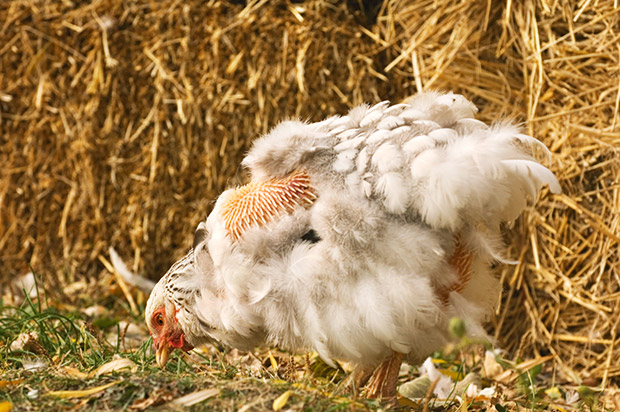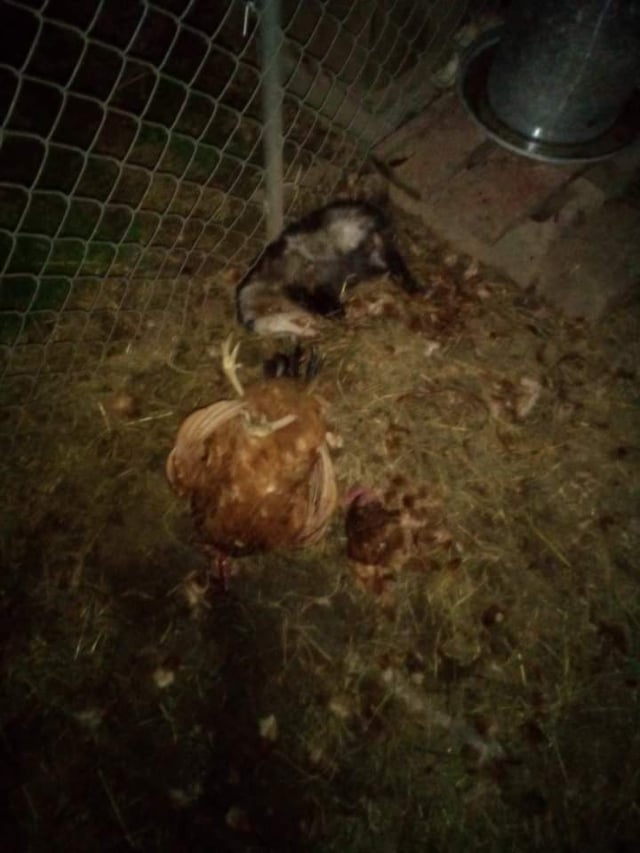To care for baby chicks, provide a warm brooder area and ensure clean water and starter feed are available. Monitor their health and behavior daily.
Raising baby chicks requires attention to their delicate needs to ensure they develop into healthy, full-grown chickens. As beginners or experienced poultry enthusiasts embark on the journey of chick rearing, understanding the essentials is the key to success. Start by setting up a secure, temperature-controlled brooder with ample space for the chicks to move and rest comfortably.
Bedding should be absorbent and changed regularly to maintain hygiene. Nutritionally balanced feed tailored for chicks supports their rapid growth, while access to clean, fresh water is non-negotiable. Observing chicks regularly helps in catching any signs of illness or distress early on, which is critical in their formative weeks. Proper care during this stage lays the foundation for the future health and productivity of your flock.

Credit: www.youtube.com
Preparing For Your Baby Chicks’ Arrival
Welcome to the delightful journey of raising baby chicks! Before these fluffy bundles of joy arrive, your preparation will lay the foundation for their healthy growth. Let’s ensure your feathered friends have the perfect start in their new home.
Setting Up The Brooder
A brooder is your chicks’ first home. It keeps them safe and warm. Start by choosing a location free from drafts and predators. A sturdy cardboard box or a plastic tub works well for a small flock. The brooder should offer at least 2 square feet per chick. Equip the brooder with a heat source, like a heat lamp, to maintain a cozy temperature of 95 degrees Fahrenheit in the first week. The temperature should reduce by 5 degrees each week thereafter. Ensure constant access to fresh water and chick starter feed.
Choosing The Right Bedding
The right bedding keeps your chicks comfortable and healthy. Pine shavings and chopped straw are excellent choices as they are absorbent and non-toxic. Avoid cedar shavings and newspapers as they can be harmful or slippery for tiny chick feet. Spread bedding about 1-2 inches thick across the brooder’s base. Change bedding regularly to prevent dampness and the growth of bacteria. Cleanliness in the brooder is crucial to prevent disease.
Key Takeaways for Your Baby Chicks’ Arrival:
- Create a secure brooder with ample space.
- Maintain the correct temperature.
- Provide continuous access to food and water.
- Choose bedding that is safe and absorbent.
- Keep the brooder clean to safeguard chick health.
Maintaining The Right Environment
Creating a cozy, safe home for baby chicks is crucial. They need warmth, fresh air, and a clean space to grow strong. Here’s how to set up the perfect environment.
Temperature Control Tips
Keeping chicks warm is vital, especially in their first weeks. Start by setting the brooder temperature to 95 degrees Fahrenheit. Then, reduce it by 5 degrees each week until reaching room temperature. Use these tips:
- Use a reliable brooder lamp: It keeps the space toasty.
- Thermometers are key: Place one at chick level to monitor the temperature.
- Watch chick behavior: Huddling means cold; spreading out means too hot.
- Adjust the lamp height: Move it up or down to control warmth.
Importance Of Proper Ventilation
Good air quality prevents diseases and keeps chicks happy. Here’s what to do:
- Ensure fresh air flow: Use vents or windows, but avoid drafts.
- Clean regularly: This stops ammonia build-up from droppings.
- Use absorbent bedding: It should be dry and clean to help with air quality.
- Space matters: Give chicks room to reduce overheating and moisture.
Feeding Your Fledglings
Bringing baby chicks into your backyard flock is an exciting time! These fluffy balls of peeping joy will depend on you for their growth and wellbeing. A vital aspect of their care lies in what you feed them. This delicate stage requires precise nutrition to kickstart their development into healthy, happy chickens.
Selecting Starter Feed
Young chicks need the perfect starter feed. It should be a high-quality source that’s formulated especially for them. Check the label for ‘chick starter feed’ when shopping. It provides all the essentials your tiny birds demand. This feed commonly comes in both medicated and non-medicated options. Medicated feed helps prevent common diseases like coccidiosis.
| Starter Feed Type | Description | Common Brands |
|---|---|---|
| Non-Medicated | Basic nutrition without medication. | Purina Start & Grow, Nutrena NatureWise |
| Medicated | Includes Amprolium to fight coccidiosis. | Manna Pro Medicated, Dumor Chick Starter |
Understanding Nutritional Needs
Chicks need proper nutrition to grow strong bones and feathers. A balanced diet must include adequate proteins, vitamins, and minerals. Starter feed usually contains 18-20% protein and is enriched with the right vitamin mix. This ensures rapid, healthy growth for the first several weeks.
- Protein: Essential for muscle and feather development.
- Vitamins: Vital for immune system health and growth.
- Minerals: Needed for bone strength and structure.
Remember, fresh water is just as crucial as the feed. Replace water daily to keep it clean and free of contaminants.
Hydration For Healthy Chicks
Little chicks need plenty of water to grow up strong and healthy. Water is vital from day one. They should always have access to fresh and clean water. Let’s make sure these fluffy bundles stay hydrated!
Choosing Waterers
For tiny beaks, choosing the right waterer is key. Small waterers designed for chicks prevent drowning. They should be shallow and easily accessible. Waterers come in many types:
- Nipple waterers promote clean drinking habits.
- Trough-style waterers are great for larger groups.
- Gravity-fed waterers keep a constant water supply.
Get a waterer that suits the size of your flock. Change it as your chicks grow.
Keeping Water Clean
Chicks can be messy. Keeping their water clean is not just about refilling the waterer. Use these tips:
| Cleaning Frequency | Instructions |
|---|---|
| Daily | Empty, scrub, and refill waterers. |
| Weekly | Use a vinegar solution to disinfect. |
| As Needed | Remove any dirt, bedding, or feed immediately. |
Place waterers above ground level to keep them clean. Check for spills to maintain a dry, safe brooder environment.
Monitoring Health And Growth
Raising baby chicks requires close observation to ensure they grow up healthy and strong. Identifying potential health issues early on makes all the difference. Additionally, tracking their growth helps confirm that your chicks are developing properly. Let’s explore the proper ways to monitor the wellbeing of your fluffy newcomers.
Spotting Signs Of Illness
Stay vigilant for any unusual behavior or changes in your chicks’ routine. Here are key symptoms to watch for:
- Lethargy or lack of activity could indicate a problem.
- Look for changes in appetite or water consumption.
- Abnormal droppings: consistency, color, and frequency matter.
- Check for signs of respiratory distress, like sneezing or wheezing.
- Observe their appearance for ruffled feathers or swellings.
Act quickly if you notice any of these symptoms and consult a vet if needed.
Scheduling Regular Check-ups
Consistent check-ups are essential. Create a regular schedule to track your chicks’ progress. Consider the following:
- Weekly weight measurements help ensure steady growth.
- Examine their feathers and skin during each check-up.
- Listen to their breathing for any abnormal sounds.
Remember, a structured health regimen leads to happy, thriving chicks. Consult with an avian veterinarian to set the best check-up routine for your feathered family.
Safety And Handling
Raising baby chicks involves delicate care. Ensuring their safety and proper handling from day one is crucial for their survival and well-being. Let’s explore the best practices to keep these fluffy newcomers safe and sound.
Proper Ways To Handle Chicks
Handling baby chicks requires a gentle touch. Below are steps to pick up and hold a chick properly:
- Wash your hands before and after to prevent spreading germs.
- Use a soft, warm approach to avoid frightening them.
- Scoop the chick with both hands, providing support to its body.
- Keep the handling brief to minimize stress.
- Ensure kids understand the need for gentle care.
Protecting Against Predators
Predators pose a significant threat to baby chicks. Follow these measures to safeguard your feathered friends:
| Predator | Preventive Measures |
|---|---|
| Cats & Dogs | Introduce pets slowly and supervise all interactions. |
| Wild Animals | Secure the coop with sturdy wire mesh and locks. |
| Birds of Prey | Cover outdoor areas with netting or wire. |
Regularly inspect the coop for gaps or weaknesses. Equip outdoor areas with motion-activated lights to deter nocturnal predators. Always ensure chicks are safely enclosed during night-time hours.
Socialization And Behavior
Raising baby chicks involves more than just meeting their physical needs. Socialization and understanding their behavior are crucial for healthy development. Let’s explore how to nurture your feathered friends for a happy flock.
Encouraging Interaction
Chicks learn to socialize early on. Start by spending time daily with your baby chicks. Use these tips:
- Handle them gently to build trust.
- Offer treats from your hand to create a bond.
- Place perches to encourage flock gatherings.
- Keep chicks in a visible area to get used to people.
These steps ensure chickens grow comfortable with humans and others in their brood.
Managing Pecking Order
The pecking order is a natural behavior where chicks establish their hierarchy. Steps to manage it:
- Observe interactions to spot any bullying.
- Provide enough space to reduce tension.
- Distract with peck toys or food when aggression shows.
- Separate bullies if pecking persists.
Understanding and managing the pecking order keeps peace within your growing flock.
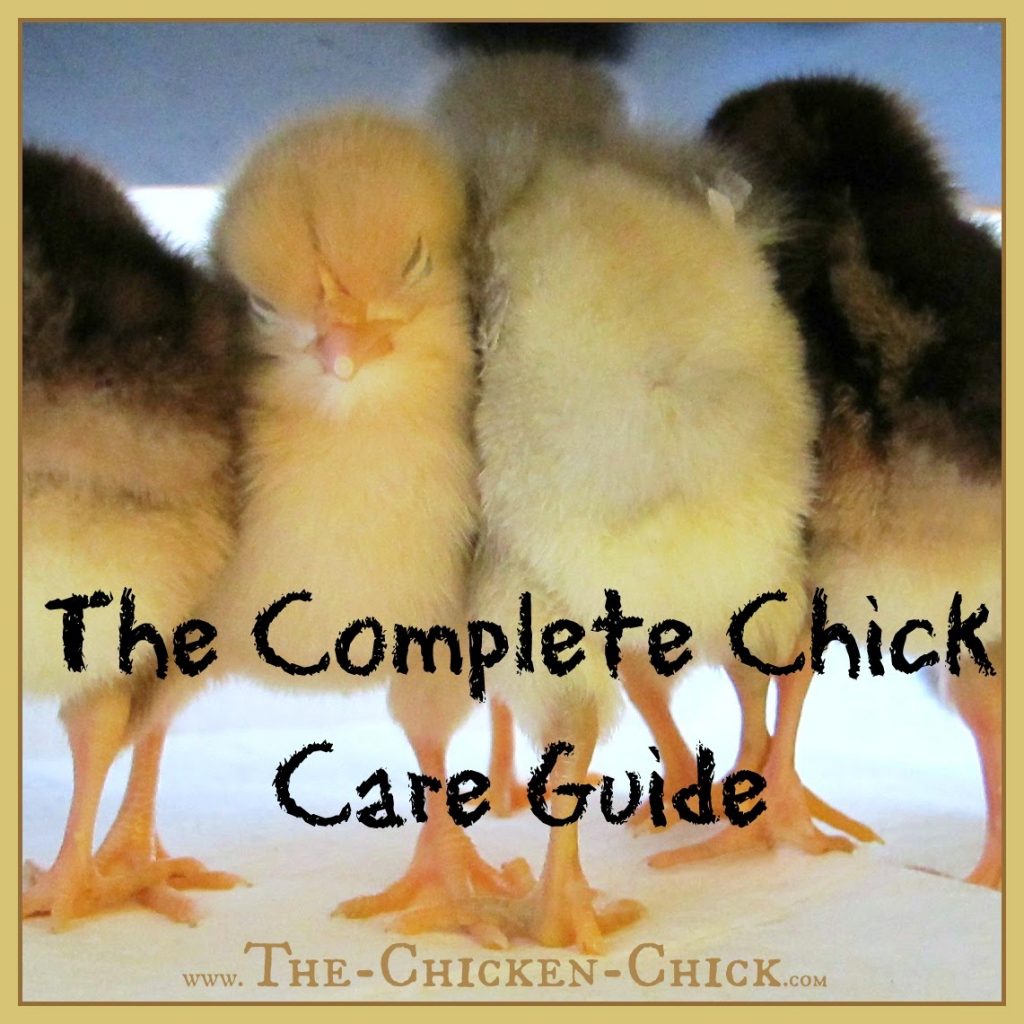
Credit: the-chicken-chick.com
Transitioning To The Coop
Nurturing baby chicks requires attention and care, but a crucial step is moving them outdoors. The transition from a brooder to the coop marks a significant milestone in their growth journey. To ensure the smoothest move, the right timing and acclimatization measures are key for the well-being of your feathered friends.
When To Move Chicks Outdoors
Baby chicks grow quickly and soon need more space. You should start planning the move when they are 6 to 8 weeks old. By this time, they will have developed feathers that will keep them warm outside. Always consider the outside temperature. Chicks need a warm environment, so wait for mild weather before moving them.
Acclimating To New Environments
Introducing chicks to their new coop can be stressful for them. Start by allowing chicks to spend short periods outdoors during warm parts of the day. Increase this time gradually. Ensure their new home is safe from predators and has no hazards. Provide a heat source if temperatures dip. Offer easy access to food and water. Observe their behavior. Signs of distress mean they need more time to acclimate. A smooth transition leads to healthy, happy chickens.
Common Challenges And Solutions
Raising baby chicks comes with its set of challenges. New chick owners might face issues ranging from brooder bullying to dietary concerns. This section explores common problems and offers practical solutions to keep your chicks happy and healthy.
Dealing With Brooder Bullying
Brooder bullying can cause stress and injury to chicks. Observing your flock regularly helps catch signs early.
- Isolate the bully to calm the situation.
- Provide enough space so chicks aren’t crowded.
- Multiple feeders and water stations prevent competition.
- Environmental enrichment like perches distracts and reduces aggression.
Consistent monitoring and adjustments ensure a peaceful brooder.
Addressing Dietary Issues
A balanced diet is crucial for chick growth. Detecting and fixing dietary problems early is key.
Look for signs like slow growth or poor feathering. These can signal nutritional deficiencies. An appropriate starter feed tailored for chicks lays the foundation for good health.
| Age | Feed Type | Protein Content |
|---|---|---|
| 0-6 weeks | Starter Feed | ~18-22% |
| 6-20 weeks | Grower Feed | ~16-18% |
Supplementing with appropriate treats and ensuring access to clean water keeps your chicks thriving.
Future Planning
Planning for the future involves nurturing life’s beginnings, particularly when raising baby chicks. Ensure these fragile birds thrive by mastering essential care techniques, from creating a warm habitat to providing proper nutrition for growth.
When raising baby chicks, the excitement can often overshadow the need for future planning. It is not just about the fluffy cuteness; these chicks will soon grow into full-sized chickens. Laying a groundwork for their growth is paramount. Below are vital steps to ensure that a cute brood turns into a thriving flock.Considerations For Expansion
- Space Requirements: Adult chickens need more room. Plan for at least 2-3 square feet per chicken inside the coop, and 8-10 square feet per chicken in an outside run.
- Coop Upgrades: Assess your current setup. Will it accommodate your chickens as they grow? Ensuring the coop is expandable and adaptable is essential.
- Additional Equipment: Consider feeders, waterers, and nesting boxes. They should scale with your flock size.
- Flock Dynamics: Introducing new chickens to an existing flock requires careful planning to minimize stress and conflict.
Long-term Care For Grown Chickens
As tiny chicks develop into adults, care needs change. Adult chickens need consistent attention to maintain health and productivity. You must establish a daily routine for feeding, cleaning, and egg collection. Regular health checks are crucial, including monitoring for parasites and potential illness signs. Seasonal considerations also play a role; for instance, colder climates may necessitate additional coop insulation and warming methods.
Feeding: Adult chickens have different dietary needs. A balanced diet keeps them healthy. Include layers pellets for egg-laying hens.
Security: Protection against predators remains important. Reinforce your coop and run as necessary to keep your chickens safe.
| Age | Space (Inside Coop) | Space (Outside Run) |
|---|---|---|
| Chicks (0-8 weeks) | 0.5 square feet | N/A |
| Growers (8-20 weeks) | 1 square foot | N/A |
| Adults (20+ weeks) | 2-3 square feet | 8-10 square feet |
Finally, consider the life cycle of your chickens. Planning for end-of-life care or retirement for older chickens ensures a humane and loving approach to the natural aging process of your feathered friends.

Credit: m.youtube.com
Conclusion
Raising baby chicks is both rewarding and delightful. By following the care guidelines we’ve discussed, your little feathered friends will thrive. Remember, a healthy start sets the stage for their future growth. Keep their environment clean, monitor temperature closely, and nurture them with proper nutrition.
With these steps, you’ll watch your chicks blossom into happy, healthy adult chickens. Enjoy the journey!

